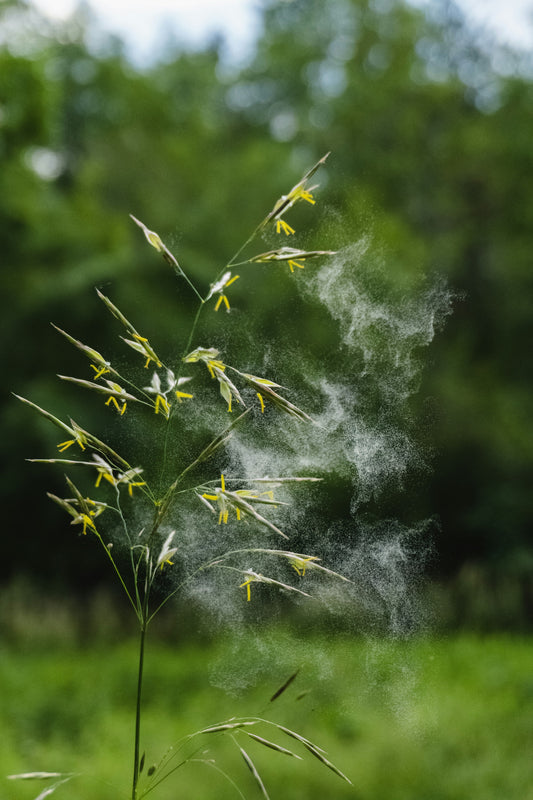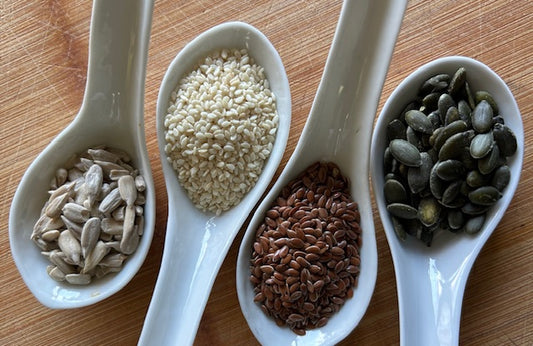Depression is sadly a common mental health challenge many of us may face at some time in our lives. NZ depression rates are higher than other countries with more women & young people affected according to Statistics NZ.
Depression is more than just having a bad day or having a low mood day, which all of us experience. It is when your low mood continues, & it begins to effect your everyday life, your sleep & your ability to relate & connect with friends & family. It may be triggered by an event or trauma but not always.
In times of stress & anxiety we can stay in the 'fight, flight or freeze phase' of our sympathetic nervous system, which for survival which is normal response. Anxiety can hold you in this phase which should be temporary. If we remain in this phase for longer periods our system starts to get depleted by over burdening the parts of our system responsible for our stress response; the HPA axis (Hypothalamus & Pituitary gland in the brain & the Adrenal glands), can become unbalanced & cortisol levels remain high. This also effect the normal 'rest & digest' phase of the parasympathetic nervous from taking over, which enables the body to rest & repair. Which is why mental health distress can affect; your ability to sleep, your digestion, your immune function & general wellbeing.
Techniques that assist in stimulating the vagus nerve can act as a stress reset button. The vagus nerve is a cranial (neck) nerve is involved in the stress response.
There are many reasons people develop depression so by the same token there are many tools that can help.
Some issues that may lead to depression are;
Insomnia
Anxiety
Nutritional deficiencies
Trauma
Loneliness
Low self worth
Lack of purpose
Injuries
Symptoms of depression;
Sleep issues or insomnia
Change in appetite
Loss of interest in activities
Becoming social isolated, not wanting to interact
Fatigue or decreased energy
Low self worth
Irritability or mood changes, low mood
Difficulty thinking clearly
Ruminating thoughts
In extreme cases psychosis or thoughts of harm
If you or anyone you know is experiencing depression it's important to reach out which can be difficult. Talk to your GP or the mental health crisis team.
Naturopathy may help depression in multiple ways; changes in lifestyle, nutritional assistance, supplements & herbal therapy support. Naturopathy does not replace your need to talk to your GP, it works best along side their care especially if the depression is moderate or severe.
Tools to help
Our brains required certain nutrients in order to function well. These can been absorbed through the diet or in some cases taken as supplements. If you are interested in taking supplements or working on your diet get in touch to get qualified advice. What we put into our body really can make a difference to how we feel. A balanced diet with enough vegetables & some fruit, quality protein & good fats are essential for good health.
Nutrients that are particularly important for mental health include;
- Protein; there are 9 essential amino acids we can't synthesise (make) ourselves. That means we need to get them from our diet. Many are needed for neurotransmitter production such as serotonin & dopamine which help us feel good & relaxed, & assist with sleep. Examples of important amino acids are tyrosine & tryptophan found in meat, particularly chicken, eggs, dairy, soy, quinoa.
- Essential fatty acids are also needed for neurotransmitter production. In particular omega 3 fatty acids. Good sources are oily fish, seeds, extra virgin olive oil, hemp seeds & oil, nuts, seaweeds.
- Magnesium, iron, zinc, folate, B12 & B6 are all required for energy production.
- Zinc & magnesium also assists with mood regulation
- Magnesium also assists by relaxing muscles, & is needed for over 300 processes in the body including many neural processes. Foods high in magnesium are; brown rice, dark greens, nuts & seeds.
Exercise is essential to good health & also helps maintain strength. When we exercise we also release endorphins that help us feel good. It can also help with neurotransmitter production important to helping us feel good. It can also help maintain a good sleep cycle.
Sleep is essential for good mental health, so ensure you have a good sleep routine helps enable you to get enough sleep. Lack of sleep may be a factor that can contribute to negative mental health issues & is shown to be a factor in many psychiatric conditions. There are several phases of sleep. Different phases help our brains to order our emotions & can effect us in different ways. REM (rapid eye movement) sleep is shown to help order & desensitise our emotional response to triggering events. While deep non REM sleep is shown to be important for reducing anxiety & irritability. So getting enough sleep is important. It's also important to have a good sleep routine ie; getting to bed at the same time & waking & the same time each day, mostly. It's ok to change it occasionally for weekends & special events etc.
Morning sunlight is shown to help set your circadian rhythm & also assist in the production of serotonin. It's important to get direct sunlight for 10-20 mins daily without sunglasses. Contacts & glasses for sight are fine.
Breathing exercises/Meditation learning to still a busy & or negative mind can help to reduce mental stress, assist with sleep, & reduce irritability. It can also help to teach us to be less reactive which can help with mental calmness. Learning mindfulness or another form of meditation, or starting some simple breathing exercises for 5-10 mins daily can help. There are many apps available for adults & children.
Vagus Nerve stimulation as mentioned above the vagus nerve can help reset the stress response, thereby helping reduce your feelings of stress. Things that may assist are; deep long abdominal breathing (long exhalations), physical sighing, getting into nature, calming yoga, like yin or yoga nidra, social connection.
Social connection is important for positive mental health. Catching up with friends & family can help improve your mood & help you feel connected. Pets & animals can also help ensure we stay socially connected. If you feel socially disconnected volunteering if you have time is a great way to feel connected to a community.
Nature getting in touch with the natural world is shown to be beneficial for the nervous system. The Japanese call it forest bathing. Walking bare foot & getting your feet into the grass, gardening, walks on the beach or in the bush or a park help in multiple ways; clear air to breath, deeper breathing, exercise, clearing our minds.
Purpose in your life. Having something or someone that helps to drive you can help your mental health. It may be work, or hobbies, sport, supporting family or someone else. Find a cause to get behind can help give you purpose. Communities that value the elderly have been shown to have a longer live expectancy due to them having a purpose within the community. Adopt an elderly person to visit & help. They gain connection as well as you.
Laughter is great for mental health. Have a laugh with friends, learn to laugh at yourself, or watch a funny movie. Belly laughter is great for helping improve your mood.
Supplements may help depending on the individual. It's best to speak to a trained professional about supplements. There are so many out there is is important to get the best ones for the best effect & ensure they are quality products. Here are some that may help;
- Essential fatty acids; quality fish oils, algae oils, hemp seed oils especially omega 3 fatty acids may help reduce depression & have been shown to assist with those on SSRIs through positive interactions. In particular higher DHA products show the most benefit for mood related symptoms like depression & anxiety.
- Magnesium; as mentioned above helps with mood, neurotransmitter production, energy production, muscle relaxation, sleep regulation so may assist. Magnesium glycinate has the benefit of being bound to glycine (an amino acid) which also helps benefit mood
- Zinc if low may help with energy production, mood issues
- 5-HTP/Tyrosine/Tryptophan are precursors to serotonin. In some cases these may assist with mood regulation
- L-theanine is another amino acid which has been shown to reduce anxiety
- St John's Wort is an awesome herb that may help with depression, however please get in contact to see if it is right for you, as it does interact with many medications
Herbal therapy; there are many herbs that are helpful. For safety I recommend talking to a qualified medical herbalist as some herbs interact with medications & some will be more suited to specific symptoms.
- Nervines; herbs that assist the nervous system may be helpful; St John's wort, Magnolia, Schisandra, Oats greens, Ginsengs, Liquorice, Lemon balm, Lavender, Passionflower, Withania.
- Adaptogens; assist by helping with adaptation to stress; Withania, Schisandra, Ginsengs; Korean, American, Siberian, Holy Basil, Liquorice.
- Herbs that assist depression & anxiety; St John's wort, Magnolia, Kudzu, Korean ginseng, Passionflower, Lemon balm, Lavender, Saffron, Zizyphus.
- Sleep support; Californian poppy, Kava, Passionflower, Zizyphus, Valerian
- Pain support; Californian poppy, Willow bark, Jamaican dogwood, Kava
Talk therapy or other types of therapy can assist with depression.
Body therapies are shown to reduce anxiety. Physical touch is important for mental health especially if someone is withdrawn socially. It can assist with sleep, calmness, pain, & leave you feeling mentally calmer. Touch can help to down regulate an over stimulated nervous system. Massage, Osteopathy, Energy work, Acupuncture are some forms of bodywork that can help.
Naturopathy can be a great tool to help with mental health issues, specifically depression & anxiety. They are areas of special interest for me. If you are interested in finding out how it may help you & someone you know get in touch.
In May I am doing a fundraiser for Youthline who support young people in NZ with mental distress.
If you would like to find out more or sponsor me follow the link below;
https://www.walkthetalk.nz/kiri
There are many sources of great information on depression, here are a couple
https://mentalhealth.org.nz/
https://www.depression.org.nz/
Photo credit https://unsplash.com/@volkanolmez




